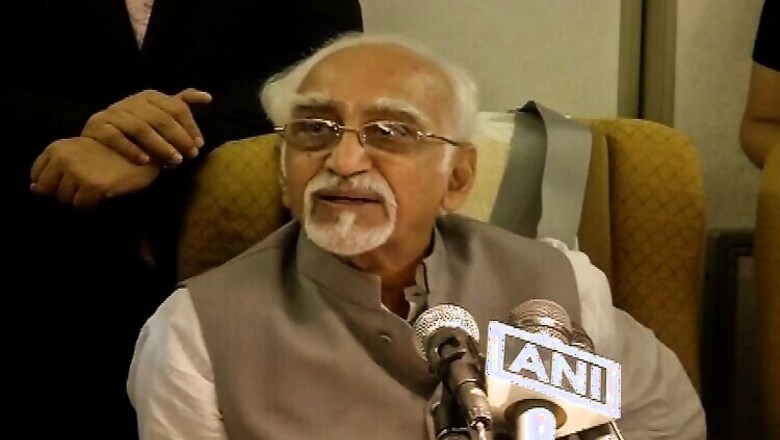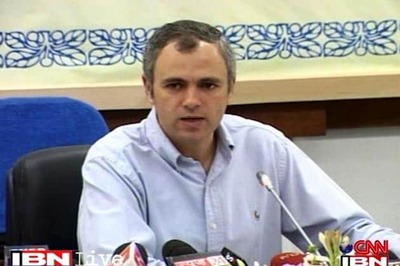
views
Vice President Hamid Ansari has weighed in on the raging intolerance debate. The vice president said that the world has learnt the value of intolerance from India and India's commitment to plurality is a constitutional one.
"Our commitment to plurality, to religious tolerance is self evident. It is written down in the Constitutional text as fundamental rights, it has been repeated again and again by the highest courts of the land. And no political party actually says that intolerance is their agenda. Everybody's agenda is the same, I am talking of proclaimed agenda. If there are shortcomings, for this reason or that reason, that is another matter," he said.
The Vice President said while nowhere the performance is hundred per cent but the "aspiration" is hundred per cent.
Asked what India could learn from Indonesia about tolerance and plurality, Ansari said that countries across the world learnt from India about plurality of society. Expressing satisfaction with his visit to Indonesia, Ansari said there is need for greater business to business contact between the two countries. He said that over the years there have been many agreements but both sides have been somewhat slow in implementing these agreements, so he suggested setting up of a Joint Working Group that would work to time schedules to which the President of Indonesia agreed.
Asked about the discussions he held with leaders of Muslim Civil leaders in Jakarta, he said that the apart from other things, the problem of extremism in relation to the religion of Islam was discussed.
"And what I expressed to them was that the public perception mainly emanating out of the western countries, and has been picked up by people elsewhere also, is that somehow the agenda relating to Islam is being set by countries in West Asia," he said.
The Vice President said he mentioned in the meeting that of all the Muslims in the world, 15 per cent live in Arab countries. Ansari that large numbers live in Indonesia, India, Bangladesh, Pakistan and if Turkey, Iran, China etc are also counted, they comprise a huge proportion of the population of Muslims in the world.
"The population of these countries are not committed to an agenda of extremism, either in religion or in political life. So instead of looking at Islamic societies in actual functioning, you look at certain countries in Western Asia, who have more political background and who have their own political problems in contemporary sense, why not look at these countries? Why not look at how Indonesia has managed it, look at how India has managed it?" Ansari said.
He added that the Muslim civil society leaders agreed with his views. He said extremism is not expressive of the spirit of Islam. Extremism is a political aberration for whatever reasons, valid or non valid, he added.
Asked about the scheduled Brunei visit, which had to be cancelled, Ansari said that it is a very important ASEAN country and a friend. Ansari was scheduled to reach Brunei on Wednesday but the closure of Bali international Airport because of volcanic ash, the visit could not take place.
(With PTI inputs)



















Comments
0 comment